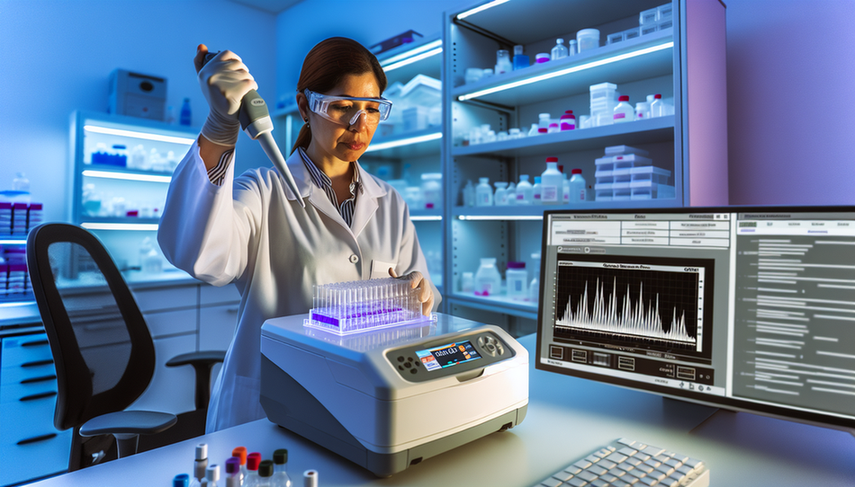Molecular Diagnosis and Real-Time PCR: Bringing Molecular Biology to Point of Care

In recent years, molecular diagnosis has revolutionized the way we approach infectious diseases and other medical conditions. Molecular biology has enabled the development of advanced techniques such as real-time PCR, which offers rapid and precise detection of pathogens. These technologies, once confined to specialized laboratories, are now increasingly available at the point of care, facilitating faster diagnoses and improving clinical outcomes.
Diving Deeper into Molecular Diagnosis at the Point of Care
Real-time PCR is considered the gold standard for identifying viral infections such as SARS-CoV-2, due to its high sensitivity and specificity. The miniaturization of this technology has allowed its implementation in point of care devices, which has been crucial during the COVID-19 pandemic. These devices are not only capable of detecting low viral loads in the early stages of the disease but are also accessible and easy to use by non-specialized personnel [1].
Furthermore, the integration of technologies such as isothermal amplification and CRISPR-based biosensors has enhanced diagnostic capabilities in resource-limited settings. These innovations allow for rapid and accurate detection of pathogens without the need for complex equipment, which is essential for controlling infectious diseases in remote areas [2].
The use of portable devices and microfluidic technology has facilitated the performance of molecular diagnosis tests at the point of care, reducing sample processing time and improving diagnostic efficiency [3]. This is particularly relevant in the management of diseases such as Mycoplasma pneumoniae pneumonia, where rapid and precise detection is crucial for administering appropriate therapy [4].
Conclusions
The advancement of molecular biology and real-time PCR has transformed the landscape of medical diagnosis, making it more accessible and efficient at the point of care. These technologies not only enhance diagnostic accuracy but also enable a quicker response in critical situations, which is vital for the effective management of infectious diseases and other medical conditions. As we continue to innovate, it is essential to keep integrating these tools into daily clinical practice to improve patient outcomes.
Referencias
- [1] Miniaturized Real-Time PCR systems for SARS-CoV-2 detection at the Point-of-Care.
- [2] Rapid and sensitive point-of-care detection of Leptospira by RPA-CRISPR/Cas12a targeting lipL32.
- [3] Smartphone technology facilitates point-of-care nucleic acid diagnosis: a beginner's guide.
- [4] Point-of-care molecular diagnosis of Mycoplasma pneumoniae including macrolide sensitivity using quenching probe polymerase chain reaction.
Created 24/1/2025
